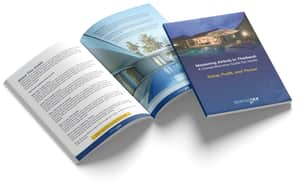If you’re renting out a villa in Thailand on Airbnb or a similar platform, understanding Value Added Tax (VAT) is essential. Once your rental income reaches a certain threshold, VAT obligations become applicable, and ignoring them can result in penalties, audits, or even the freezing of your accounts.
In this guide, we’ll walk through everything you need to know to stay compliant and keep your Airbnb villa operation running smoothly.
When Do Airbnb Villa Operators Need to Register for VAT?
VAT registration isn’t something all property owners need to worry about, but for short-term rentals, the rules are different.
If you’re renting out your villa on a nightly or weekly basis (as most Airbnb hosts do), this is considered a commercial rental under Thai law. You are required to register for VAT if your annual gross rental income exceeds THB 1.8 million—roughly USD 50,000.
Annual gross rental income includes:
- All rental income, including service charges and Airbnb fees
- Any earnings from cleaning fees or other add-ons
In contrast, if you’re offering long-term leases for residential dwellings (e.g. monthly or yearly contracts), your income is typically exempt from VAT.
Even if you’re below the threshold, you can voluntarily register for VAT to claim input tax credits. Many companies that own and operate villas are VAT-registered by default, due to broader business obligations.
How to Register for VAT
The VAT registration process is reasonably straightforward, but you’ll need the proper documents.
First, gather copies of your business registration (or company affidavit), identification, the title deed or lease for your property, and proof of your income, such as Airbnb booking summaries or bank statements.
You can then apply in person at your local Revenue Department office, or use the e-VAT system at www.rd.go.th. You’ll be issued with a VAT Certificate usually within 7–14 days, along with a 13-digit VAT ID.
From this point on, start charging VAT on your bookings and filing monthly returns.
It’s good to set up proper accounting from the start, whether through software or by hiring a Thai-speaking accountant who can manage the paperwork for you.
Filing Your Monthly VAT Returns
Once you’re registered, you must file a VAT return every month, even if you didn’t earn any income that month. The relevant form is PP30, and it’s due by the 15th of the following month.
Here’s how it works:
- You charge 7% VAT on your short-term rental income
- You deduct input VAT from eligible expenses, such as utilities, cleaning, and marketing costs
- You file the form either online (via the Revenue Department’s e-Filing system) or in person
Even if your earnings vary from month to month, consistent filing is a must. Be sure to keep all receipts, invoices, and booking records for at least 7 years. Doing so will help you stay audit-ready and avoid disputes in the future.
Managing VAT Through a Thai Company
If your villa is owned by a Thai company (which is often the case for foreign investors), VAT obligations are handled slightly differently. Still, they’re usually more structured and easier to manage with professional support.
Companies can claim VAT refunds on larger expenses, such as furnishing, renovations, or professional services. Be sure to issue proper VAT invoices to your guests, track all input costs, and stay up-to-date with filings.
You’ll also want to work closely with an accountant to make sure you’re separating deductible and non-deductible expenses correctly and maximising your VAT efficiency.
Need help getting VAT sorted?
Book a free consultation with the team at Rental Tax Thailand. We help villa operators navigate registration, monthly filings, and tax planning with ease.
[BOOK YOUR FREE CONSULTATION]
Avoiding Common Mistakes
Many villa owners fall into trouble because they didn’t realise VAT applied to their rental activity, or they filed late without knowing the consequences.
Here are some pitfalls to avoid:
- Late filings incur penalties ranging from THB 500 to 2,000 per return, plus 1.5% interest per month on unpaid VAT.
- Incorrect calculations or false claims for input tax can result in additional fines.
- Poor recordkeeping is one of the top reasons for audits, so keep your paperwork organised and accessible.
Tips for Staying Compliant
Managing VAT doesn’t have to be overwhelming. Here are some simple ways to stay on track:
- Use an accounting platform to automate tracking and filings
- Hire a local accountant familiar with short-term rental operations
- Review your VAT filings quarterly to catch any errors early
- File on time, every time—even if your monthly income is low or zero
A little structure goes a long way in avoiding costly surprises.
Helpful Resources
- Revenue Department of Thailand: www.rd.go.th
- e-Filing Portal: https://efiling.rd.go.th
Final Thoughts
Mastering VAT is a crucial aspect of operating a compliant and sustainable Airbnb villa in Thailand. Whether you’re managing one property or several, it pays to understand when to register, how to file, and what you can claim.
Done right, VAT can be a manageable part of your business, not a legal headache.
Avoid the hassle. Ensure accuracy and compliance.
Let us take care of the filings so you can confidently grow your Airbnb villa business.
Consult with a VAT expert at Rental Tax Thailand and gain the peace of mind that comes with knowing your obligations are handled professionally, every month.
